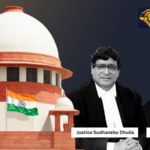Supreme Court orders Registry to reject black-and-white photographs in pleadings unless authorized
The Supreme Court has recently mandated its Registry to no longer accept black and white photographs as part of court pleadings without explicit prior approval. This significant shift in policy was articulated by Justices Surya Kant and Ujjal Bhuyan during a hearing on a land compensation and rehabilitation issue in Daman & Diu.
The decision reflects the Court’s growing concern over the quality and authenticity of photographic evidence presented in legal documents. Historically, the Court has observed that parties often submit black and white photocopies of photographs, which frequently turn out to be blurred and of poor resolution, thus complicating the judicial assessment process.
This concern was first voiced on August 20 by the same bench when it took issue with the practice of using mobile phone-captured photographs in pleadings. The incident that brought this issue to the forefront involved photographs in a land encroachment case, which were found to have been taken by a mobile camera, raising doubts about their reliability and relevance to the case at hand.
The Supreme Court’s warning was stern, signaling a potential crackdown on what it views as a lax approach to evidential submissions. The Justices warned of harsh repercussions for those continuing to flout these standards, including the possibility of severe judicial orders against members of the bar involved in such practices. They hinted at extreme measures, such as the revocation of licenses for advocates found guilty of submitting misleading or inadequate photographic evidence.
This directive underscores the Supreme Court’s commitment to upholding the integrity of legal proceedings and ensuring that all evidence presented is clear, relevant, and conducive to the fair administration of justice. The court’s stance is a clear message to the legal community about the importance of maintaining strict evidential standards in judicial processes.


